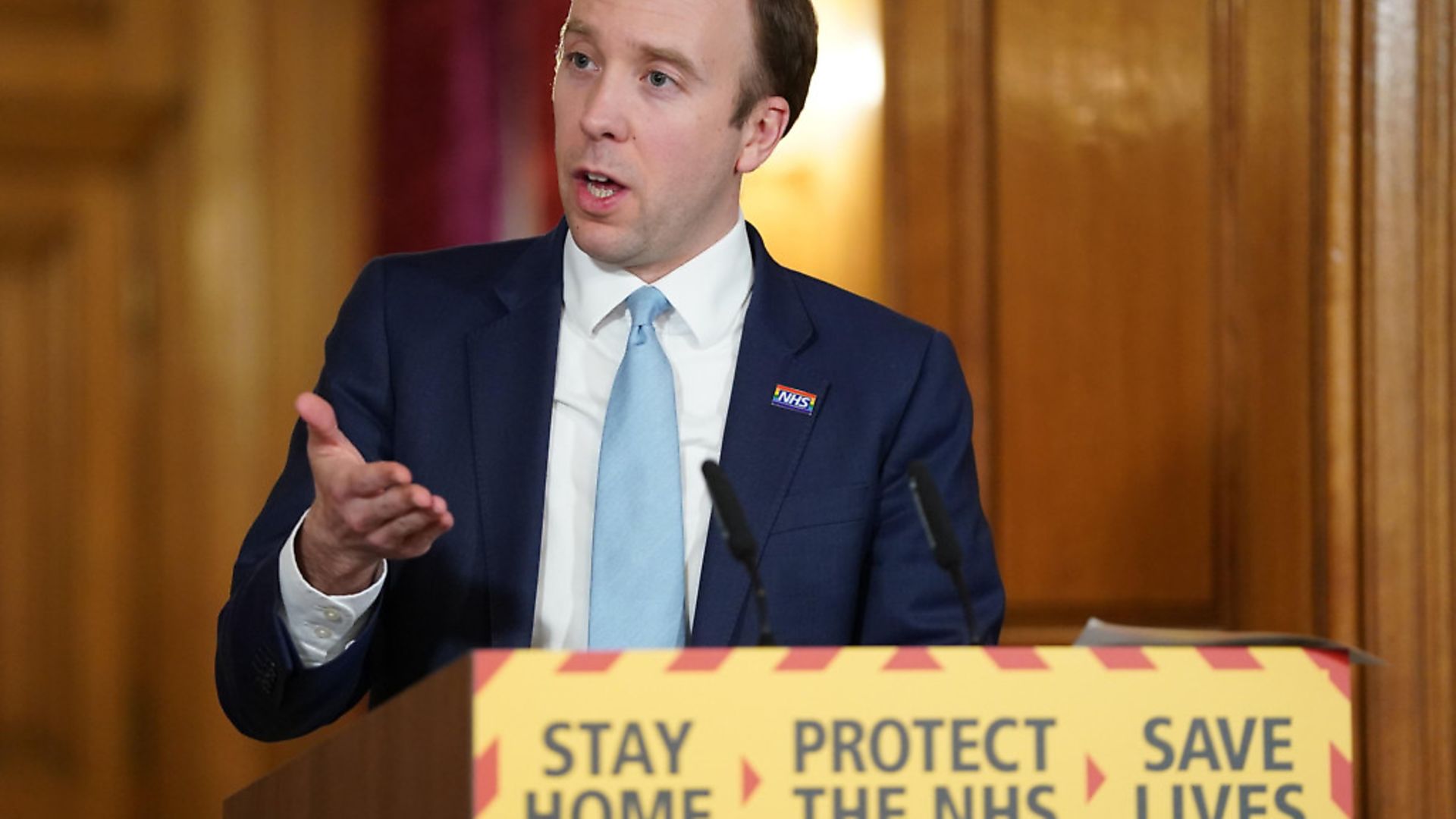
The UK will carry out 100,000 Covid-19 tests per day by the end of April, Matt Hancock has said, as he set a new target as part of the government’s testing strategy.
After several days of intense scrutiny over failures in testing, the health secretary said he was setting out a new ‘five-pillar’ strategy on the issue.
He said the UK would hit 100,000 tests per day, which can be made up of antigen tests that tell people whether they currently have Covid-19, as well as antibody tests to see whether people have previously had the infection.
Hancock, who has recovered from Covid-19 and came out of self-isolation on Thursday, said he came back ‘redoubled in my determination to fight this virus with everything I’ve got.
‘And we will strain every sinew to defeat it once and for all.
Have your say
Send your letters for publication to The New European by emailing letters@theneweuropean.co.uk and pick up an edition each Thursday for more comment and analysis. Find your nearest stockist here or subscribe to a print or digital edition for just £13. You can also join our readers' Facebook group to keep the discussion and debate going with thousands of fellow pro-Europeans.
‘And I will stop at nothing to make sure that frontline staff have the right equipment so that they are safe and can have the confidence they need to do their jobs.’
Hancock said the UK lacked a large diagnostics industry so was having to build from a ‘lower base’ than the likes of Germany, which is testing at greater levels for coronavirus.
He said a country-wide shortage of swabs had been ‘resolved’ but that there remained a ‘global challenge’ around sourcing the reagent chemicals needed for the tests.
Hancock said NHS staff would be able to get tested for Covid-19 ‘absolutely before the end of the month’.
He added: ‘With 5,000 tested since (staff testing) started at the weekend we’ve clearly made significant progress.’
The minister said his five part strategy was:
– Swab testing in Public Health England (PHE) and NHS labs
– Using commercial partners, including universities and private businesses, to establish more swab testing
– Introducing antibody blood tests to determine whether people have had Covid-19
– Surveillance to determine the rate of infection and how it is spreading across the country
– Build an ‘at-scale’ diagnostics industry to reach 100,000 tests by the end of April.
Hancock said the government was working with nine potential providers on a new antibody test – which many argue is the key to releasing the lockdown – but that this would only be rolled out when clinicians were confident it was a valid test.
He said: ‘No test is better than a bad test.’
The cabinet minister defended his decision to prioritise testing of patients over NHS staff and said he thought any health secretary would have done the same.
Hancock said: ‘I understand why NHS staff want tests, so they can get back to the front line, of course I do.
‘But I took the decision that the first priority has to be the patients for whom the results of a test could be the difference in treatment that is the difference between life and death.
‘I believe anybody in my shoes would have taken the same decision.’
The health secretary also announced that more than £13 billion of historic NHS debt would be written off to place trusts in a ‘stronger position’ to respond to the coronavirus crisis.
Figures showed that 5.7% of doctors were currently absent due to Covid-19, he added.
Hancock confirmed that the government was considering issuing people with immunity certificates once the antibody tests were ready for roll-out.
‘We are looking at an immunity certificate – how people who have had the disease, have got the antibodies and therefore have the immunity, can show that and so get back, as much as possible, to normal life,’ he said.
The prime minister’s spokesman said this had been discussed in other countries and the UK was watching what happened closely.









